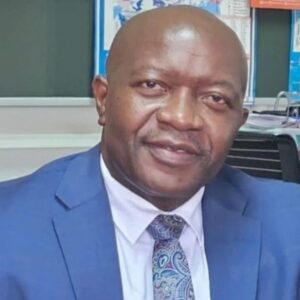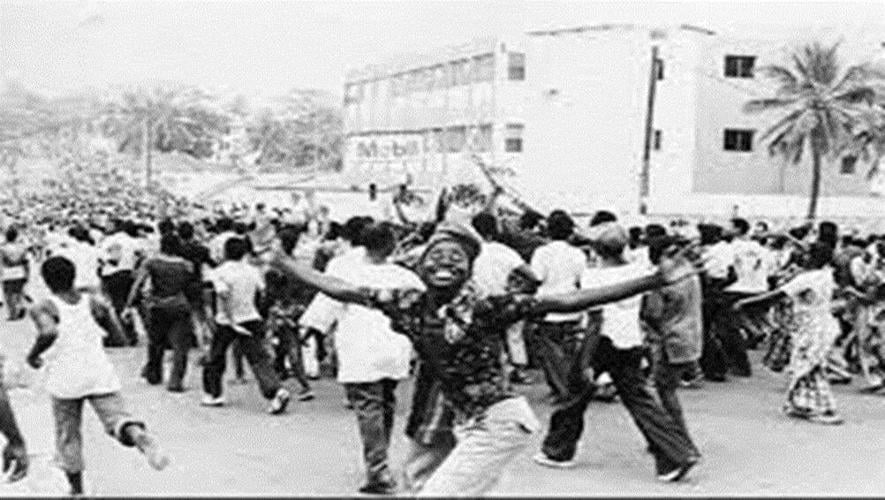By Hun-Bu Tulay
Email: ntevoma@gmail.com/Cell#+231-777-111-032/886-517-356
“The true goal of education transcended rote memorization. The true aim of university was not learned by heart, but to learn to think and engage with ideas actively, and read widely, and question assumptions. This is the path to genuine intellectual growth.” Albert Einstein
The Law of the Jungle and the Foundations of Legal Order (1894–1950s)
The concept of the “Law of the Jungle,” popularized by Rudyard Kipling in 1894, underscores a brutish state of nature were power dictates survival. This idea parallels Liberia’s historical struggles with weak legal enforcement, which risks societal regression into chaos. Aristotle’s assertion that humanity thrives under the rule of law, not anarchy, frames Liberia’s need for robust judicial institutions to counteract corruption and impunity.
Upholding the rule of Law got Justice Stability
In modern governance, an Attorney General or Legal Adviser who fails to provide accurate counsel or incorrectly interprets judicial rulings undermines the administration’s integrity and effectiveness. If such an official neglects to identify government actions that infringe on citizens’ rights or misconstrues binding rulings from the High Court, they render themselves unfit for their role. For instance, had the Attorney General/Legal Adviser properly interpreted the High Court’s December 6, 2024, ruling, the catastrophic burning of the Capitol Building might have been averted. We saw these many times during the administration of the late President Tolbert. Read the “The Hand of God”, a book written by Burleigh Holder. You will see many examples. He wrote many opinions for the president. He was truly a legal scholar from London School of Law.
Similarly, accountability must extend to the Ministry of Justice (or relevant law enforcement body) tasked with securing public institutions. If the Capitol’s Building protection fell under their jurisdiction, the Ministry bears responsibility for the damage much like a private security firm contracted to safeguard property would be liable for failures leading to its destruction. This principle of accountability ensures that those entrusted with legal and protective duties uphold their obligations or face consequences for negligence.
Dr. Rockefeller L. Weeks’ Vision for Education (1959)
In 1959, Dr. Rockefeller L. Weeks, during his induction as President of the University of Liberia, echoed Albert Einstein’s philosophy: “From these walls will go forth THINKING BEINGS, NOT ROBOTS.” He challenged Liberia to prioritize critical thinking over rote memorization. This vision aimed to cultivate citizens capable of driving national transformation. Decades later, this call remains urgent as Liberia’s education system struggles to move beyond Sirleaf’s 2006–2018 critique of it being “a mess,” failing to foster the analytical skills needed to dismantle authoritarianism and corruption.
Mr. Minister prioritize minds over building Einstein’s Philosophy of Education:
Albert Einstein once remarked, *“Education is not the learning of facts, but the training of minds to think. It is against this profound truth that we must question the government’s prioritization of constructing 100 additional schools while existing institutions languish without qualified teachers, functional libraries, scientific laboratories, or even basic learning materials. To build schools without nurturing the conditions for critical thought is to confuse quantity with quality, structures with substance, and compliance with creativity. Are we constructing institutions of learning or factories of rote memorization?

Current Finance Minister Agustine Ngafuan
Einstein’s philosophy warns against education that reduces students to “robots” passive receptacles of information. Yet for six years, we have witnessed schools across Liberia’s hinterlands Gbarpolu, Southeast, and even parts of Montserrado operate as hollow shells of learning. Visit the Boatswain’s school on Jamaica Road, and you will see cracked walls housing overcrowded classrooms, teachers juggling four subjects without training, and laboratories devoid of beakers or books. How can such an environment cultivate the “thinking beings” Einstein championed? When students are denied tools to experiment, question, or imagine, we risk graduating generations conditioned to repeat, not reason; to accept, not innovate.
The irony is stark: a nation cannot claim progress by plastering the landscape with buildings while starving minds of intellectual nourishment. Einstein argued that “imagination is more important than knowledge,” for knowledge alone is static, while imagination reshapes the world. But imagination cannot thrive where teachers lack training to inspire inquiry, where libraries gather dust instead of ideas, and where science is taught without experiments. To build new schools atop this crumbling foundation is to prioritize political spectacle over pedagogical purpose.
The Finance and Development Minister must heed Einstein’s call for education that “develops individuality and free judgment.” Redirecting resources to upgrade existing schools is not austerity it is wisdom. Invest in training teachers as facilitators of curiosity, not dictators of syllabi. Equip libraries with books that spark wonder, laboratories with tools that turn theory into practice, and classrooms with technology that connects Liberian students to global dialogues. Let us transform schools into ecosystems of exploration, where students grapple with open-ended questions, collaborate on community projects, and learn to see education as a lifelong journey of discovery.
Liberia’s future hinges not on how many schools it builds, but on how deeply its schools can build thinkers. As Einstein cautioned, the value of a college education is not the learning of many facts, but the training of the mind to think something that cannot be learned from textbooks. Let us abandon the vanity of empty infrastructure and instead cultivate institutions where every student whether in Gbarpolu or Monrovia emerges not as a robot programmed with answers, but as a visionary armed with questions, creativity, and the courage to reimagine tomorrow.
Mr. Minister, pause the groundbreaking ceremonies. First, lay the groundwork for minds. Let Einstein’s wisdom guide Liberia: “We cannot solve our problems with the same thinking we used when we created them. To solve tomorrow’s challenges, we must first reimagine today’s classrooms. We understand that you attended Boatswain School on Jamaca Road before going to BWI. Albert Einstein once remarked, “Education is not the learning of facts, but the training of the mind to think.” This philosophy rooted in nurturing curiosity, imagination, and critical reasoning stands in stark contrast to the Liberian government’s recent proposal to construct 100 new schools while existing institutions languish in neglect. How can we reconcile this plan with the glaring deficiencies in our current system: underqualified teachers, barren libraries, and laboratories devoid of tools? To prioritize quantity over quality is not progress; it is a betrayal of the very purpose of education.
Einstein warned against reducing education to a mechanical process, cautioning that “It is a miracle that curiosity survives formal education.” Yet, today, schools across Gbarpolu, southeastern Liberia, and even Montserrado the seat of our capital are miracles in reverse. Students in these regions are taught in crumbling classrooms, handed outdated textbooks, and starved of the resources that spark intellectual growth. Visit Boatswain’s school on Jamaica Road, and you will witness this firsthand: a generation being trained to memorize, not to question; to comply, not to innovate. Are we content to graduate robots’ pupils armed with certificates but devoid of vision or do we aspire to cultivate “thinkers” Can you imagine what Liberia’s future will be will be , if we continue this way?
The government’s fixation on brick-and-mortar expansion ignores Einstein’s core insight: infrastructure alone cannot educate. A school without passionate teachers is a skeleton without a soul. Laboratories without equipment are stages without instruments. Libraries without books are monuments to inertia. True education, as Einstein envisioned, thrives in environments where students are encouraged to “think deeply”, ask inconvenient questions, and perceive the world with wonder. This demands investment in human capital: training educators, curating modern curricula, and investment in human capital: training educators, curating modern curricula, and
equipping classrooms to foster experimentation and debate.
To the Minister of Finance and Development Planning: Redirecting funds to upgrade existing schools is not a compromise it is a moral imperative. Imagine the transformative potential if every current institution had qualified teachers, digital libraries, and functional labs. Imagine students in River Cess probing renewable energy solutions, or teens in Bong County debating philosophy under the guidance of inspired mentors. “This” is the essence of Einstein’s philosophy: education as liberation, a force that empowers minds to transcend limitations.
Liberia’s youth do not need more hollow buildings; they need “opportunities to think”. Let us heed Einstein’s wisdom: The value of achievement lies in the achieving. Achieve this not through superficial metrics, but by cultivating schools that ignite curiosity, nurture creativity, and graduate citizens capable of critical thought. Only then will our education system become what Einstein called “a reflection of our highest aspirations”.
Mr. Minister, let us revisit the discussions held during the Cabinet Retreat in Kakata City, Margibi County in 2010. You may recall that after Dr. Joseph Kotor’s presentation which highlighted the Ministry’s construction of over 200 schools, we emphasized that this was “not” the metric the President wished to prioritize. As we clarified to both the President and the Cabinet at the time: “a building does not equate to a functional school”.
An IDEAL SCHOOL demands far more than infrastructure. Critical components include:
- Qualified teachers adequately trained and compensated.
- Science laboratories to foster practical learning.
- Libraries and up-to-date textbooks to support literacy and research.
- Internet access to align education with 21st-century demands.
- Holistic policies to ensure equitable access and retention.
Yet, Mr. Minister, we must confront a pressing issue: What percentage of our students today are passing the West African Examinations Council (WAEC) exams? How many meet the thresholds for college admissions, professional programs (graduate studies, law, medicine), or even basic employment?
During that retreat, you yourself acknowledged the crisis, stating: “Our high school graduates cannot even compose a job application. Have these stark realities faded from memory so soon, Mr. Minister?
The President and the nation seek accountability. We urge you to shift focus from bricks and mortar to quality, sustainability, and outcomes. Liberia’s future hinges not on the number of buildings erected, but on the “skills, knowledge, and readiness” of its youth.
Judicial Accountability Precedent: Cllr. C. Abayomi Cassell’s Disbarment (1961)
Liberia’s judiciary established an early precedent for accountability in 1961 when Cllr. C. Abayomi Cassell was disbarred for presenting a misleading legal document in Lagos. Judicial Canon 12.5 of the country empowers courts to punish members of the bar for contempt and misconduct, which enforces the power of the courts and guides the behaviour of members in courts and outside of courts to preserve institutional integrity.

This case contrasts sharply with current concerns about impunity, such as Liberia National Bar Association President Cllr. Bornor Varmah’s alleged public attack on the Supreme Court, raising questions about double standards in enforcing ethical codes. If the court does nothing and allows the Bar President to go free, will the court have the guy to hold any member of the Bar on similar public attach on the court in the future? Secondly, if the President (Boakai) does not enforce the Supreme Court’s rule which ruling in the future will you enforce Mr. President? One of the most painful decisions President Tolbert took was the enforcement of the Supreme Court’s opinions in the ritualistic murder cases RL vs. James Daniel Anderson and others and that of his cousin William Tolbert who killed his wife. This is what a true leader does. True leaders do not support blind loyalists. The law is the law, and the Executive must enforce the law, when the court rules.
The 1979 Rice Riots: A Lesson in Protest Rights
Article 17 of Liberia’s Constitution guarantees peaceful assembly, but in 1979, the government’s demand for protest permits over rice price hikes ignited deadly riots.

This historical lesson underscores the danger of suppressing dissent. Global norms (e.g., the U.S. and EU) require notification, not permission, for protests. Repeating the 1979 error by obstructing demonstrations risks reigniting unrest and the consequences could be more impactful than those of April 14, 1979.
Sirleaf’s Critique and Educational Stagnation (2006–2018)
Former President Ellen Johnson Sirleaf’s indictment of Liberia’s “messy” education system highlighted persistent failures to prioritize critical inquiry. Despite her acknowledgment, reforms stagnated, leaving institutions ill-equipped to counter “blind loyalty” or cultivate leaders capable of ethical governance. This stagnation perpetuates cycles where citizens and lawyers prioritize self-interest (greed, envy) over societal good, weakening democratic foundations.
Current Constitutional Crisis: House Speaker Removal (2024)
The attempted removal of House Speaker J. Fonati Koffa in 2024 tested Liberia’s constitutional adherence. Article 49 mandates a two-thirds majority for removal but requires due process under Article 20 (fair hearing). The absence of recusal, debate, or secret ballot contrasting with the U.S. model risks unconstitutional precedent. Lawyers like Cllr. Varmah, tasked with upholding the law, face scrutiny for politicizing legal processes reflecting broader ethical decay.
Call to Action: Upholding Democracy (2024)
President Joseph Boakai must restrain officials like Justice Minister, whose misinterpretations of protest rights and judicial authority risk repeating past crises. Strengthening checks on power, enforcing judicial canons, and prioritizing education reform are urgent. Without these steps, Liberia risks backsliding into the “Law of the Jungle,” where might overrules right, and citizens remain “robots” of complacency rather than “thinkers” of progress.
Stoic Mind Mastery
The Stoic critique of herd mentality, “cattle’s trails lead to slaughterhouses”, urges Liberians to reject blind loyalty and cultivate reason. Autonomy, virtue, and critical thinking, as championed by Einstein and Weeks, are antidotes to corruption and authoritarianism. Enlightenment lies not in conformity but in challenging power, demanding accountability, and aligning actions with justice. Only through such rigor can Liberia transcend its cyclical crises.
Liberia’s journey from Weeks’ 1959 vision to today’s constitutional tests reveals a nation at a crossroads. By anchoring itself in critical education, judicial integrity, and Stoic self-mastery, Liberia can replace the “Law of the Jungle” with a future where laws uplift, thinkers lead, and citizens co-create democracy.

